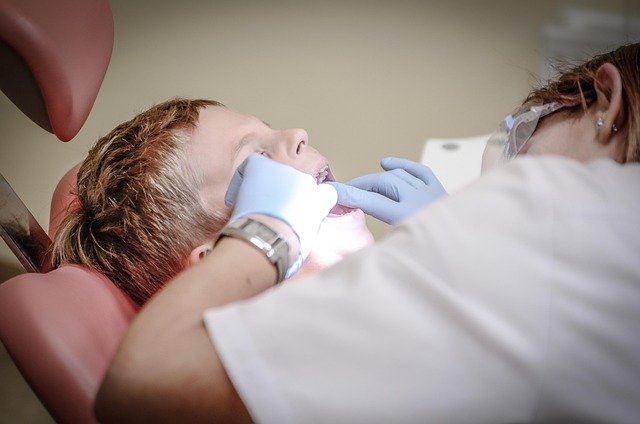How Medicare Approaches Hearing Support in 2026: Key Information to Understand
Medicare's relationship with hearing care continues to evolve as millions of Americans face age-related hearing challenges. Understanding what Medicare covers for hearing services, the limitations of current benefits, and alternative options can help beneficiaries make informed decisions about their hearing health. While Medicare provides some hearing-related coverage, significant gaps remain that often require additional planning and resources.

Medicare’s approach to hearing care reflects a complex healthcare landscape where coverage varies significantly depending on the type of service and specific circumstances. As we move through 2026, beneficiaries need clear information about what Medicare covers, what it doesn’t, and how to navigate the available options for hearing support.
How Hearing Evaluations Fit Into Medicare’s Existing Framework
Medicare Part B covers diagnostic hearing evaluations when they are medically necessary and ordered by a physician. These evaluations typically occur when a doctor suspects an underlying medical condition affecting hearing, such as an infection, injury, or neurological issue. The coverage extends to audiological services performed by qualified audiologists or hearing aid dispensers working under physician supervision.
Routine hearing screenings for preventive care, however, fall outside Medicare’s standard coverage. This distinction means that while Medicare will cover hearing tests to diagnose medical problems, it generally won’t pay for annual hearing checks or screenings without specific medical justification. Beneficiaries should understand that the evaluation must be deemed medically necessary and documented appropriately to qualify for coverage.
Medicare also covers certain hearing-related medical treatments, including surgical procedures for conditions like acoustic neuromas or chronic ear infections that affect hearing. Additionally, bone-anchored hearing aids may receive coverage when they’re considered prosthetic devices for specific medical conditions, though this requires meeting strict criteria and prior authorization.
What Experts Highlight About Current Hearing Aid Coverage Limitations
Traditional Medicare Parts A and B do not cover hearing aids for most beneficiaries, representing one of the most significant gaps in hearing care coverage. This limitation affects millions of Americans who could benefit from hearing assistance but face substantial out-of-pocket costs. Healthcare experts consistently point to this coverage gap as a barrier to accessing essential hearing care.
Some Medicare Advantage plans offer hearing aid benefits as supplemental coverage, but these benefits vary widely between plans and insurance companies. The coverage typically includes annual allowances ranging from $500 to $3,000 for hearing aids, with some plans offering additional benefits like fitting services or follow-up care. However, these allowances often don’t cover the full cost of quality hearing aids.
Experts emphasize that beneficiaries should carefully review Medicare Advantage plan documents during open enrollment periods to understand hearing aid benefits. The coverage details, including which providers are in-network, annual benefit limits, and copayment requirements, can significantly impact the actual value of these benefits.
| Plan Type | Coverage Level | Annual Allowance | Additional Services |
|---|---|---|---|
| Traditional Medicare | Limited | $0 for hearing aids | Diagnostic evaluations only |
| Medicare Advantage Basic | Partial | $500-$1,500 | Basic fitting services |
| Medicare Advantage Enhanced | Comprehensive | $2,000-$3,000 | Fitting, follow-up, batteries |
| Medicare Supplement | Varies | Plan-dependent | May cover copays for evaluations |
Prices, rates, or cost estimates mentioned in this article are based on the latest available information but may change over time. Independent research is advised before making financial decisions.
Hearing Care Options Outside of Standard Medicare Services
Beyond traditional Medicare coverage, several alternatives exist for accessing hearing care services. Veterans Affairs benefits may provide comprehensive hearing care for eligible veterans, including hearing aids, evaluations, and ongoing support services. This coverage often exceeds what’s available through Medicare and represents a valuable resource for qualifying individuals.
Private supplemental insurance policies specifically designed for hearing care have emerged as another option. These policies typically cost between $15 and $50 monthly and may cover portions of hearing aid costs, routine evaluations, and maintenance services. While not comprehensive, they can help offset some expenses not covered by Medicare.
Community health centers and nonprofit organizations sometimes offer sliding-scale hearing services based on income. State vocational rehabilitation programs may also provide hearing aids and related services for individuals whose hearing loss affects their ability to work. Additionally, some employers offer hearing benefits through their retiree health plans, which can supplement Medicare coverage.
Over-the-counter hearing aids, approved by the FDA for mild to moderate hearing loss, represent another option that doesn’t require Medicare coverage. These devices, typically costing $200 to $1,000 per pair, provide an accessible entry point for individuals with less severe hearing challenges.
Understanding Medicare’s approach to hearing support requires recognizing both its benefits and limitations. While coverage exists for medically necessary evaluations and certain treatments, the lack of routine hearing aid coverage remains a significant consideration for many beneficiaries. Exploring supplemental coverage options, community resources, and alternative solutions can help individuals develop comprehensive strategies for addressing their hearing care needs within the current Medicare framework.




